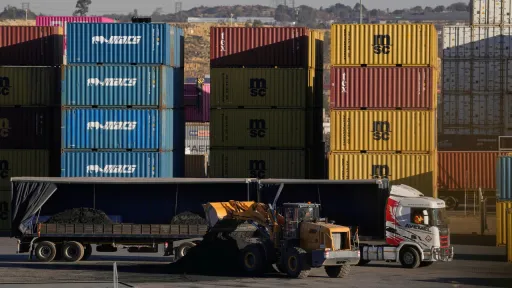South African financial markets have outperformed expectations, with the Johannesburg Stock Exchange (JSE) reaching record highs and the rand/dollar exchange rate rising despite a threat to exports from 30% US tariffs.
However, growth in Africa's largest and most industrialised economy has been stuck at around 1% for a decade and the outlook is uncertain, despite promises of reforms from the coalition government put together a month after May 2024's election.
These include reforms on freight and rail, boosting power generation and improving skills for South Africans left out of the job market.
Business indices show private sector hesitation to invest. South Africa's economy grew 0.8% in the second quarter of 2025, its fastest in two years.
Improved ports
The government wants 3% growth within three years. The central bank forecasts 2% by 2027.
South Africa’s highest unemployment rate is at 33.2% in the second quarter.
Minister of Employment and Labour, Makhosazana Meth, told Reuters economic uncertainty meant nearly 100,000 jobs could be shed this year as companies like ArcelorMittal, Goodyear and Ford South Africa lay off workers. She wants to provide 240,000 South Africans with job opportunities this year.

Years of inadequate electricity supply, notably from the state power utility, Eskom, have hindered growth. However, in the past year, the power supply has stabilised after years of blackouts.
Interventions to improve operations at the ports and freight rail company Transnet are slowly bearing fruit too.























